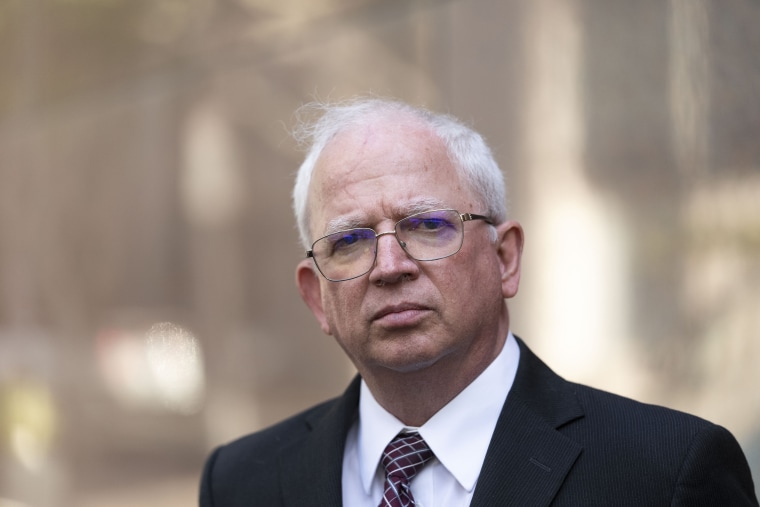[ad_1]
WASHINGTON — Conservative Justice Clarence Thomas for the first time recused himself from a case involving the Jan. 6, 2021, attack on the U.S. Capitol by then-President Donald Trump’s supporters as the Supreme Court on Monday rejected an appeal brought by former Trump legal adviser John Eastman.
Thomas, under fire over claims of ethical lapses, had participated last year when the court rejected Trump’s bid to prevent White House documents from being handed over to the House committee investigating Jan. 6.
Then, Thomas was the only justice to signal support for Trump’s legal arguments.
This time, Thomas stepped aside in the case involving Eastman, who had served as a law clerk to the justice.
Eastman’s case also involved the now-defunct Jan. 6 committee, centering on the former law professor’s efforts to prevent his former employer, Chapman University, from handing over archived emails sent from or to Eastman’s account.
As is typical for justices, Thomas did not explain why he recused himself. In addition to Thomas’ professional history with Eastman, another reason he might have stepped aside is that some of the released emails reportedly mentioned Thomas as being the justice likely to be most receptive to Trump’s arguments.
The case was effectively moot even before the Supreme Court’s action on Monday as the committee obtained relevant emails and has concluded its investigation.
Eastman had pushed the discredited argument that then-Vice President Mike Pence had the power to refuse to certify the 2020 presidential election results.
He has also been indicted over efforts to overturn the 2020 election results in Georgia.
Eastman recently vouched for Thomas following various news reports alleging that the justices had fallen short of ethical standards. Separately, he is facing disbarment proceedings in California over his role in the election.
Thomas earlier had faced criticism for failing to recuse himself from Trump’s Jan. 6 case because his wife, conservative political activist Virginia “Ginni” Thomas, had been a vocal supporter of Trump’s efforts to overturn the election.

Court rejects 14th Amendment case
In another Trump-related case, the court on Monday rejected a long-shot legal challenge seeking to block Trump from being elected president again.
The justices turned away an appeal filed by John Castro, a write-in Republican candidate for president, who represented himself in the case and has filed similar lawsuits.
Castro argued in his appeal that Trump is ineligible to be on the ballot under the Constitution’s 14th Amendment because of his “aid and comfort to the convicted criminals and insurrectionists that violently attacked our United States Capitol on January 6, 2021.”
It is just one of several cases around the country seeking to block Trump from the ballot by invoking the 14th Amendment, which states that no one shall hold any office who “engaged in insurrection or rebellion against the [United States], or given aid or comfort to the enemies thereof.”
Although some legal scholars have backed the argument, others have dismissed it, pointing out the difficulty of enforcing the constitutional provision and questioning whether Trump’s actions rose to the level of “insurrection or rebellion.”
Trump is facing criminal charges for his role in events leading up to Jan. 6 and was also impeached by the then-Democratic controlled House of Representatives in the days after the episode. The Senate acquitted Trump after falling short of the 67 votes needed to convict him.
Although the Supreme Court could end up weighing in on the issue before the 2024 election, Castro’s case seemed like an unlikely contender in part because after losing in a federal district court in Florida, he filed his appeal directly at the high court instead of going through the normal appeals process.
The judge who handled the case was Judge Aileen Cannon, a Trump appointee who attracted scrutiny for her role overseeing another criminal case involving the former president, in which he has been accused of unlawfully retaining government documents at his Mar-a-Lago residence after leaving office.
Even before the Supreme Court rejected Castro’s appeal, it had signaled a lack of interest in the case by not even asking Trump’s legal team to file a response.
[ad_2]
Source link
